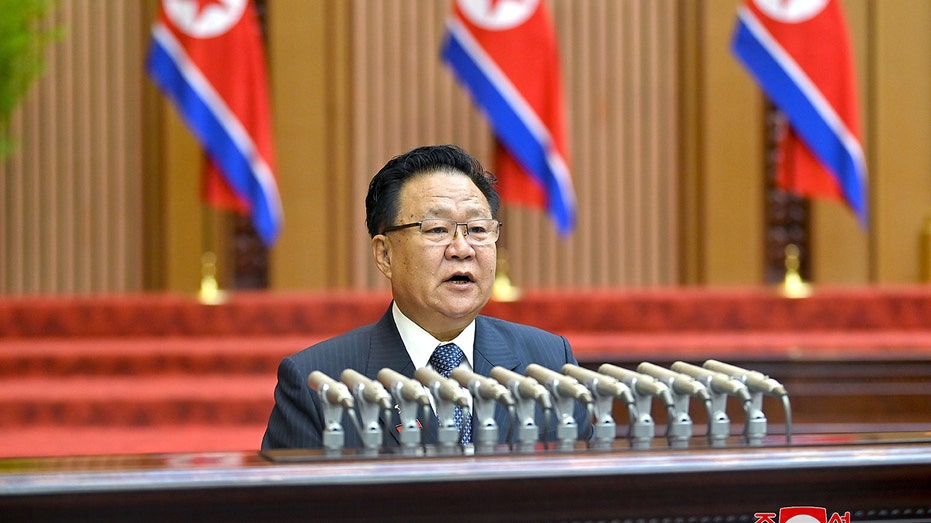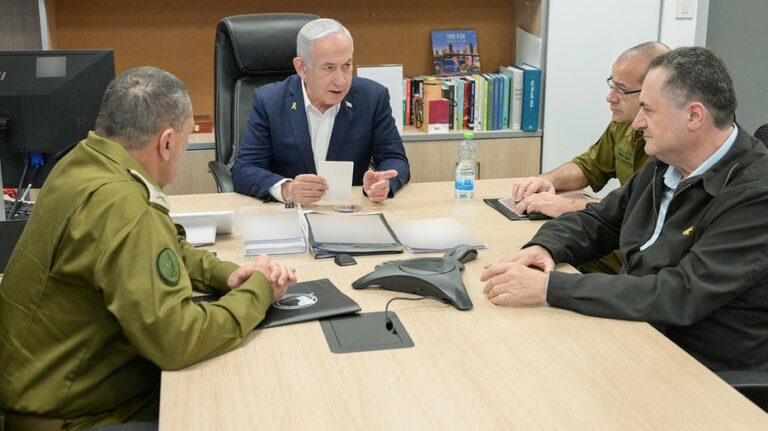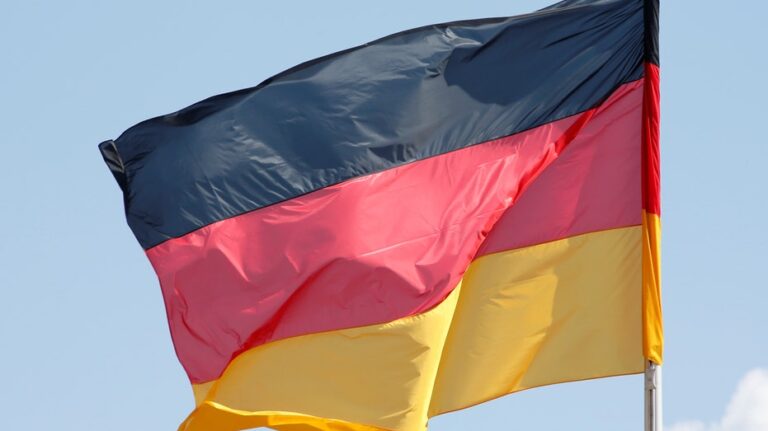
To cope with ‘confrontational hysteria’ by U.S. and South Korean forces, North Korea said it will block its border with South Korea permanently and will cut off railways and roads to the country.
North Korea said Wednesday it will permanently block its border with South Korea and build front-line defense structures to cope with “confrontational hysteria” by South Korean and U.S. forces, while not announcing an expected constitutional revision to formally designate South Korea its principal enemy and codify new national borders.
NORTH KOREAN TROOPS NOW FIGHTING FOR RUSSIA IN UKRAINE, SEOUL SAYS
While the moves were likely a pressure tactic, it’s unclear how they will affect ties with South Korea since cross-border travel and exchanges have been halted for years.
North Korea’s military said it will “completely cut off roads and railways ” linked to South Korea and “fortify the relevant areas of our side with strong defense structures,” according to the North’s official Korean Central News Agency.
The North’s military called its steps a “self-defensive measure for inhibiting war and defending the security” of North Korea. It said that “the hostile forces are getting ever more reckless in their confrontational hysteria.” It cited what it called various war exercises in South Korea, the deployment of U.S. strategic assets and its rivals’ harsh rhetoric.
South Korea’s military said later Wednesday that it won’t tolerate any attempt by North Korea to change the status quo. It said South Korea will “overwhelmingly punish” North Korea if it launches provocations. A South Korean military statement said North Korea’s nuclear and missile programs have threatened peace on the Korean Peninsula.
South Korean officials earlier said North Korea had already been adding anti-tank barriers and reinforcing roads on its side of the border since April in a likely attempt to boost its front-line security posture and prevent its soldiers and citizens from defecting to South Korea. In a report to parliament on Tuesday, South Korea’s Unification Ministry said that North Korea has been removing ties on the northern side of cross-border railways and nearby lamps and planting mines along the border.
KCNA earlier Wednesday said the Supreme People’s Assembly met for two days this week to amend the legal ages of North Koreans for working and participating in elections. But it didn’t say whether the meeting dealt with leader Kim Jong Un’s order in January to rewrite the constitution to remove the goal of a peaceful Korean unification, formally designate South Korea as the country’s “invariable principal enemy” and define the North’s sovereign, territorial sphere.
At the center of outside attention was whether North Korea makes new legal claims on the waters currently controlled by South Korea off their west coast. The poorly marked western sea boundary is where three bloody naval skirmishes and two deadly attacks blamed on North Korea happened in the past 25 years.
Some experts say North Korea might have delayed the constitutional revision but others speculated it amended the constitution without announcing it because of its sensitivity.
Kim’s order stunned many North Korea watchers because it was seen as breaking away with his predecessors’ long-cherished dreams of achieving a unified Korea on the North’s terms. Experts say Kim likely aims to diminish South Korea’s voice in the regional nuclear standoff and seek direct dealings with the U.S. They say Kim also likely hopes to diminish South Korean cultural influence and bolster his rule at home.
Tensions on the Korean Peninsula are at their highest point in years, with North Korea continuing a run of provocative weapons tests and South Korea and the U.S. expanding their military drills. KCNA said North Korea on Tuesday tested a long-range artillery system that observers say pose a direct threat to Seoul, the South Korean capital, which is only an hour’s drive from the border.






